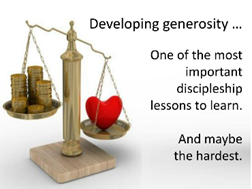ANNUAL
CAMPAIGNS #2
Last week, I talked about three important
factors for donors and two important ideas about money.
What if we talked about money at a
time during the year when we weren’t asking for it? I know, I know, no one wants
to talk about money. But have you considered that might be because we are so
scared that we only talk about money when the church needs it?
I think we’re doing a grave
disservice to the folks in our church (whether they worship inside the building
or virtually), by not helping them with their own personal money concerns.
- ·
Are
they in debt?
- ·
Do
they have too many credit cards?
- ·
Do
their expenses exceed their income?
- · Did
they learn how to budget?
Have you shared information about
the importance of planning giving? By this, I mean, considering naming the
church in their will, or making the church the beneficiary of an asset?
- ·
If
the church was important enough to give you while they’re alive, why not
consider the importance after?
- ·
Have
you done a wills workshop, talking about powers of attorney and health care proxies?
Let’s talk about generosity, not
money! Generosity is part of being a disciple, and if we ignore it, so our
folks ignore it, then our disciples aren’t maturing in their discipleship!
Giving and generosity is intertwined
into our mission and who we are as Christians!
Please
feel free to contact me at (315) 427-3668 or susanranous@unyumc.org if you’d like to talk
about mission and money in your local church. I have some great ideas to help
you understand where you are and where you’re going, and how to help your folks
discuss and embrace generosity!













